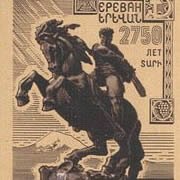(Changing Turkey) The deficiencies in Turkish IR literature mirror the deficiencies of the broader IR literature. IR is still an American dominated field. Until recently, American IR was characterised by what is called inter-paradigm debates between realism, liberalism and to some extent, constructivism. Later another major debate emerged between positivists and non-positivists, the end result of which has been an increasing divergence between American IR, which tends to be overwhelmingly positivist and European IR, which tends to be non-positivist (though not overwhelmingly so). American IR is supposed to have left “theory” behind in the sense that most recent research does not take strong paradigmatic position but is methods driven instead, to the extent of “fetishising” various statistical and experimental methods at the expense of asking big questions. European IR, on the other hand, has become very (meta)-theoretical, to the extent that it is possible to see IR scholars who are incredibly well versed in the nuances of the writings of particular continental philosophers but have no interest in what the general public would consider IR questions.
Because many Turkish IR scholars are trained abroad, either in the US or Europe, and/or have to conform to the expectations of that literature to get published in “top” journals, which are invariably located in the US or Europe, we see the problems created by the situations I have described above replicated in the Turkish IR literature as well. The quantitative trend in the American IR literature has not quite taken hold in Turkish IR, but the paradigm-speak is very much a fact. How anyone can be familiar with Turkish politics and take the rationalist approaches of neorealism or neoliberalism to be descriptive theories of international relations is beyond me. At least in Americans defence we can say that they don’t know any better! Also, in the articles I am sent to review dealing with some aspect of Turkish politics and Turkish foreign policy, I sometimes see a very utilitarian approach to theory use – some theoretical framework is superimposed on a more nuanced case study without thinking too much about the assumptions and the implications of the theory itself. On the flip side, the more “meta” European approaches to IR seem to give some Turkish scholars “critical” bona fides without having to go through the trouble of taking critical political stances with real world implications.
But I do not mean to come across as overly critical of Turkish IR; my colleagues in Turkey are working in difficult conditions, to put it mildly, and yet are still able to contribute in very significant ways to the broader IR literature. Turkish IR is taken very seriously in the broader discipline due to their efforts. Of the younger generations, I very much admire the works of Pinar Bilgin, Bahar Rumelili, Lerna Yanik, Sinan Birdal, Senem Aydin Duzgit, just to name a few names off the top of my head; I am leaving out many others who are also doing excellent work (my apologies in advance). These are scholars who could work anywhere in the world, yet choose to stay in Turkey. Their contributions to Turkish IR cannot be overestimated. There are also many Turkish scholars with positions abroad who are doing very interesting work: Nukhet Ahu Sandal, Kerem Nisancioglu and Karabekir Akkoyunlu are three recent examples that come to mind. […]
Read More © Changing Turkey










